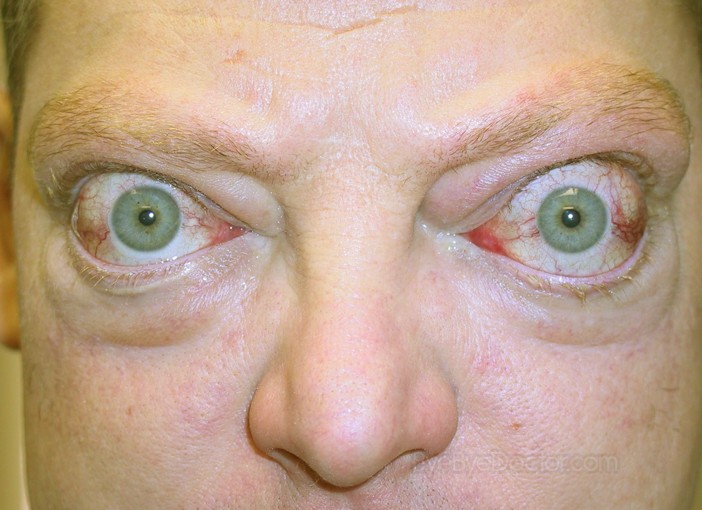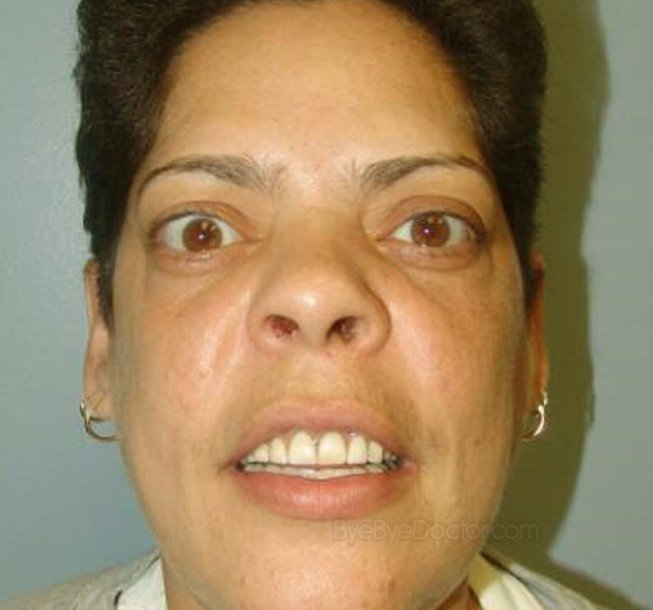What is Graves Disease?
Named after an Irish doctor, Robert Graves in the 19th century, Graves’ disease is described as an autoimmune medical condition characterized by a serious imbalance in metabolism known as thyrotoxicosis and hyperthyroidism, resulting from overproduction of thyroid hormones. In this condition, the patient’s neck is diffusely enlarged and is hyperactive, thus, manufacturing too much thyroid hormone. The disease process involves the activation of the TSH-receptor by TSHR-Ab, in that way, the thyroid hormone synthesis and secretion and thyroid enlargement are stimulated.
Rarely, Graves’ disease is life-threatening. It is also the most common cause of spontaneous thyrotoxicosis representing about 60 to 90% of all origin of thyrotoxicosis worldwide. It can affect anyone, at any age, but more commonly; this disease affects women before forty years of age.
Graves Disease Symptoms
In general, the symptoms manifested by a patient with Graves’ disease are one and the same to the symptoms experienced by a patient with hyperthyroidism. These are virtually always the result from the direct and indirect effects of hyperthyroidism. Classic symptoms include:
- A diffusely enlarged, usually symmetric, non-tender thyroid gland
- Anxiety
- Nervousness
- Increased perspiration
- Weight loss despite normal or similar eating habits
- Sweating
- Diarrhea / Frequent bowel movements
- Tremors
- Rapid or irregular heartbeat such as palpitations and arrhythmias such as sinus tachycardia, atrial fibrillation and premature ventricular contractions
- Exophthalmia
- Heat intolerance
It can also manifest with any or all of the following:
- Shortness of breath with exertion
- Proximal Muscle Weakness
- Back pain, increased risk for fractures
- Fatigue
- Difficulty in concentration
- Irritability
- Insomnia
- Pretibial myxedema
- Double vision
- Muscle wasting
- Increased appetite
- Worsening diabetes control
- Easy bruising
- Increased eye tearing and irritation
- Infrequent menstrual periods
- Hair loss
- Erectile dysfunction
- Brittle nails
Graves Disease Causes
The primary cause for the production of the antibodies is undetermined. Given that this condition is autoimmune in origin which appears all of a sudden, doctors assume that an infection, either caused by viruses or bacteria, can activate the antibodies which cross-react with the human TSH receptor through a process known as antigenic mimicry.
Eventhough Yersinia enterocolitica seems not to be the main cause of this condition; it can still play a role in the occurrence of thyroid autoimmunity. Other individuals may have a hereditary predisposition to have TSH receptor autoantibodies in the system after adequate stimulation by factors.
Graves Disease Treatment
Treatment will depend on the patient’s age and overall condition, size of the thyroid gland and the patient’s preference. At present, there are about three modes of treatment. These include medications that slow down the production of thyroid hormones and which provide relief from symptoms, the administration of radioactive iodine to destroy a segment of the thyroid gland, in that way, reducing hormone production and lastly, surgical removal of a section of the thyroid gland.
Drug therapy
For symptomatic purpose, beta blockers like propranolol atenolol, metoprolol and nadolol are prescribed to impede sympathetic nervous system symptoms such as tachycardia, tremors, anxiety, irritability, sensitivity to heat, excessive perspiration, muscle weakness and nausea up to the time the antithyroid medications begin to take effect. Patients suffering from asthma are not prescribed with beta blockers because these medications initiate attacks. Diabetic patients are also contraindicated because the drug can complicate diabetes. The drug must not also abruptly discontinued; doing so would cause patients to develop heart irregularities.
http://www.Symptoms-Causes-treatment.blogspot.com detect diseases at an early stage symptoms, and find out the causes and treatments best suited.
The doctor will include methimazole and propylthiouracil in the treatment plan in order to prevent thyroid from producing thyroid hormones. These medications can result to drowsiness and minor exhaustion. This form of therapy is safe and restores hormones to normal level within a few months. Rarely, these may result to agranulocytosis.
Radioactive iodine therapy
If pharmacological therapy fails, attempts to treat the condition can be tried using radioactive iodine therapy as alternative treatment. A capsule or water containing the radioactive iodine is drank by a patient. Once swallowed, the radioiodine is rapidly absorbed by the thyroid cells which have previously become overactive. They then become destroyed by the radiation, therefore, diminishing the thyroid hormone produced. After a few days, the radioactivity fades away from the body. Pregnant woman should not undergo radioactive iodine therapy since this can negatively affect the developing fetus.
Surgery
The thyroid gland or a segment of it can be surgically removed through thyroidectomy. In cases when only a single nodule is producing excessive thyroid hormone, then only a small part of the gland is surgically eliminated. When the problem is the entire gland being overactive, which is more frequently the case, then, a total thyroidectomy is necessary.
Surgery is indicated for patients with a large goiter especially when trachea is compressed or when enlargement continually worsens even after drug therapy or if there is a presence of a suspicious nodule or cancer. Those who are contraindicated to undergo the radioactive iodine therapy such as those pregnant women and young patients are suited for this modality.
Graves Disease Diet
The total amount of iodine found in the diet can have an effect on the hormonal synthesis activity in the thyroid gland. Therefore, diet is a particularly critical component in controlling the condition. To put it simply, given the idea that thyroid hormone is made up from iodine atoms, and with the patient’s condition where hormones are excessively produced, the vital step to do is to avoid dietary intake of iodine-rich foods. Avoiding foods especially those which are extremely high in iodine, including iodized salt, seaweed, kelp, shellfish and beef liver, must be observed.
Safe foods for patients with Graves’ disease include
- Fresh fruits
- Dried fruits
- Unsalted nuts
- Nut butters without salt
- Jams and jellies
- Fresh vegetables except broccoli, cauliflower, cabbage, sprouts, corn, asparagus and kale
- Fresh, lean meats
- Whole grain products with verified low iodine content
- Apple sauce
- Grain pastas
- Egg whites
- Decaffeinated brewed coffees and tees
Graves Disease Pictures


